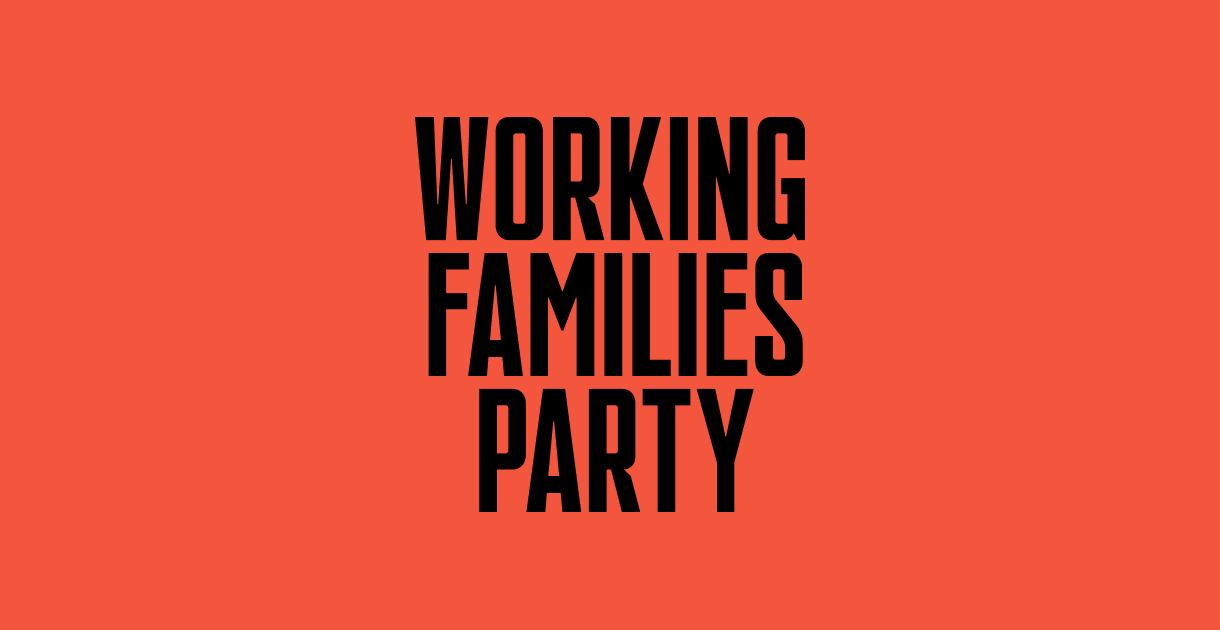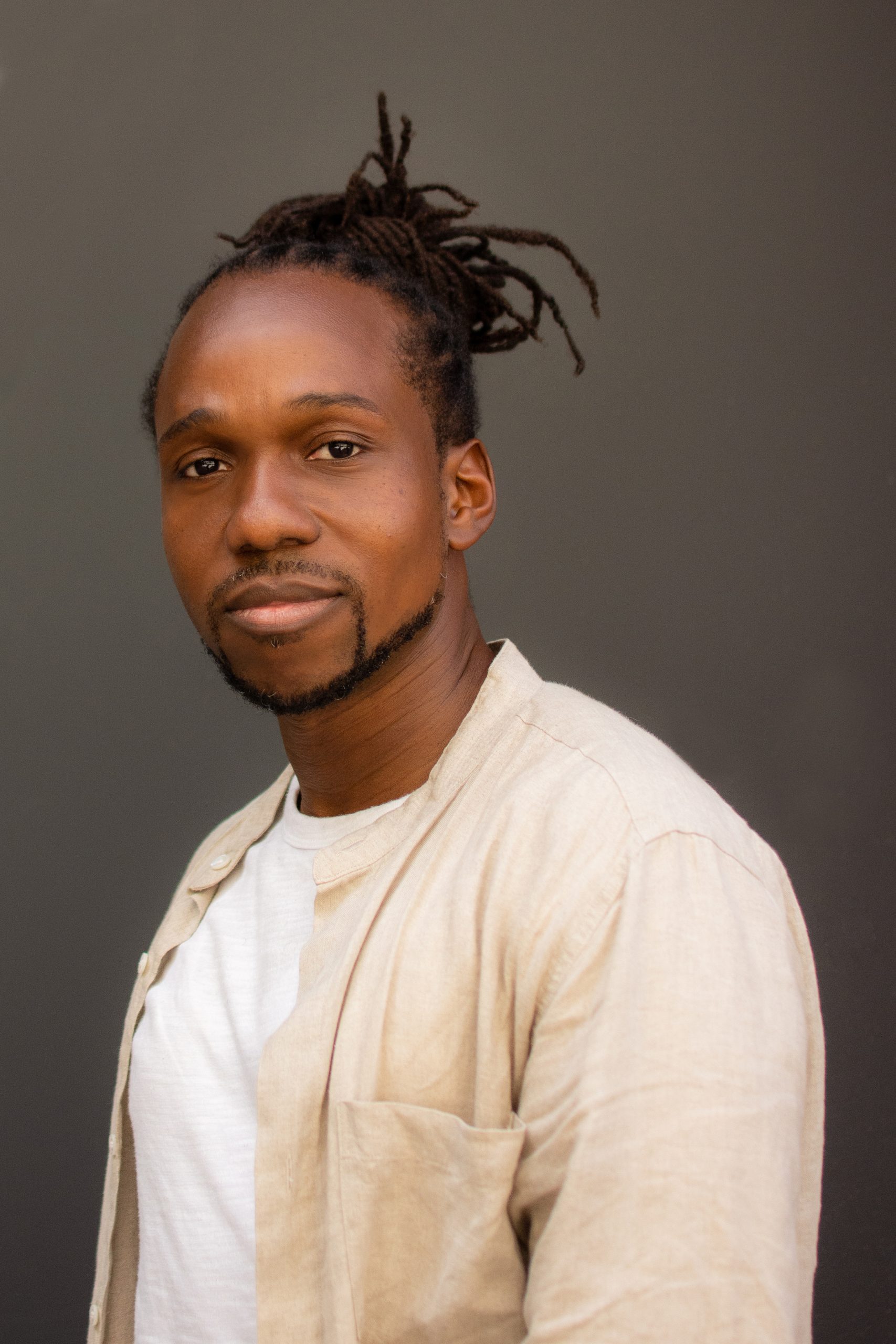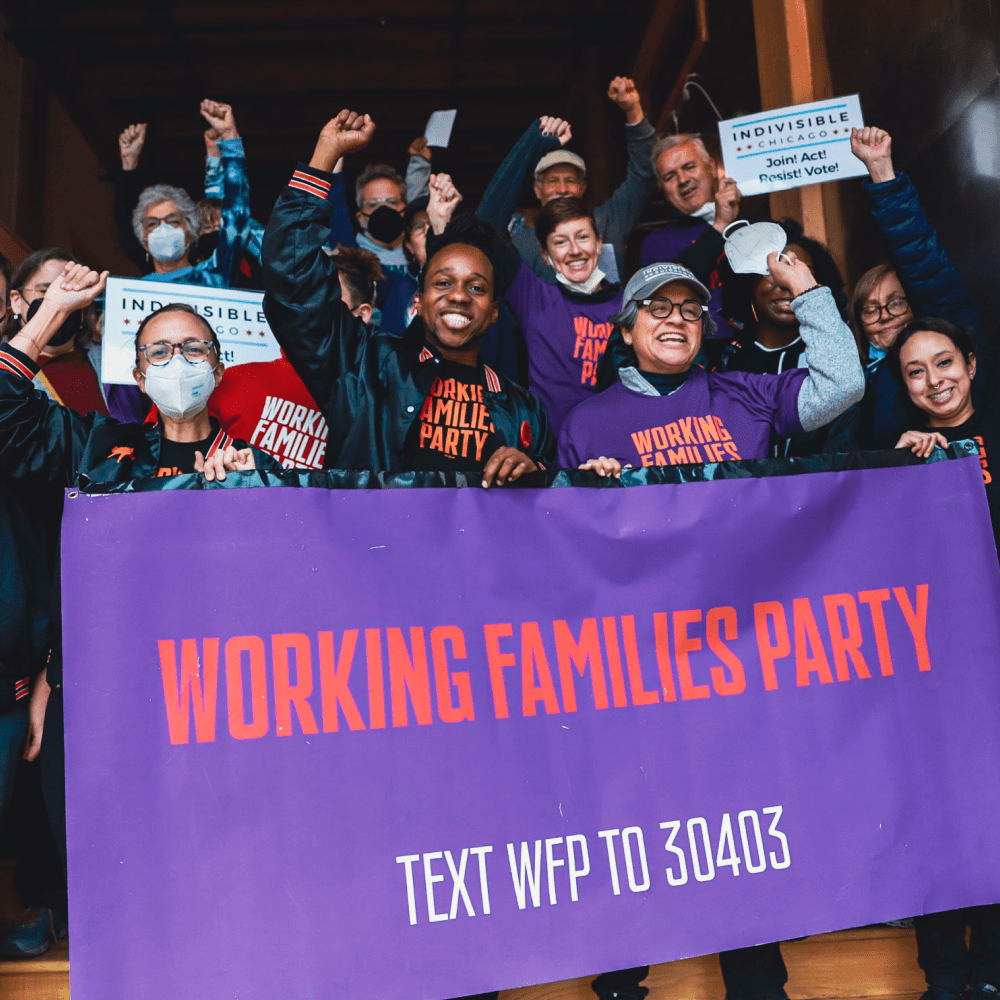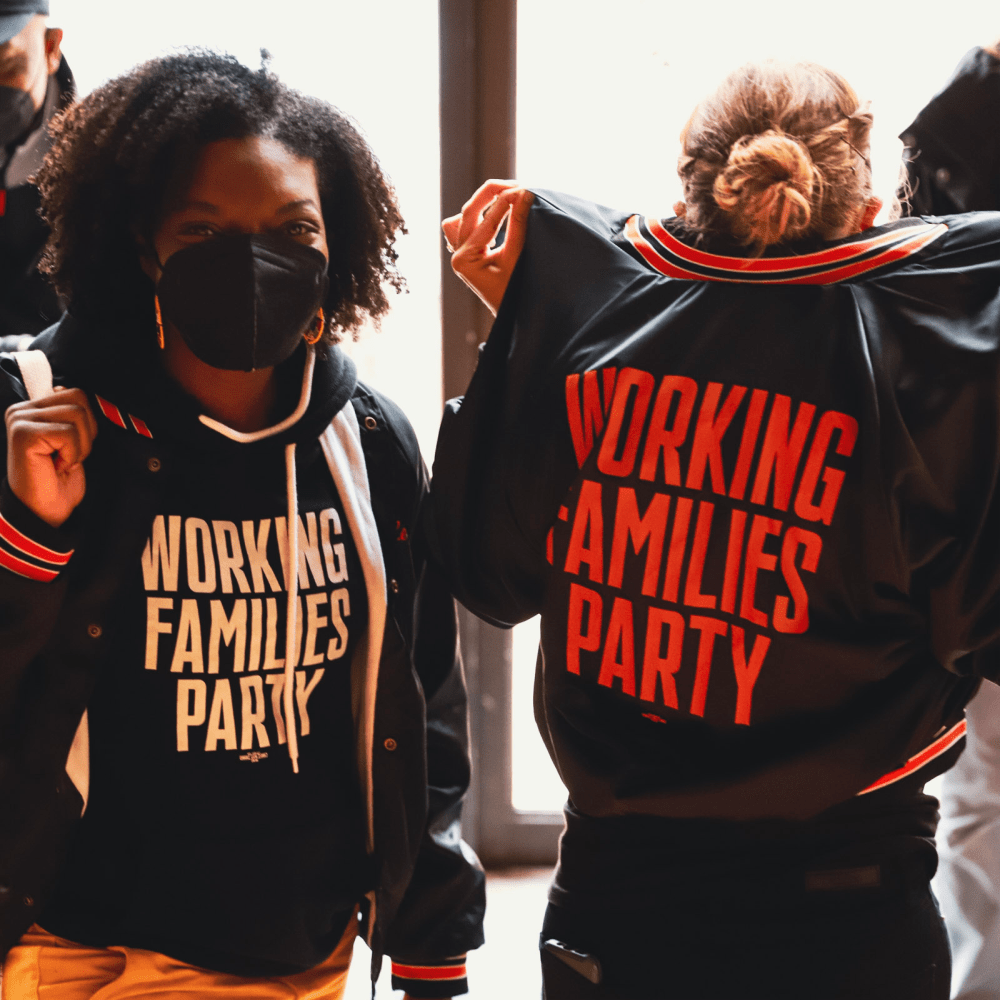

Maurice Mitchell is a Long Island, NY-based community activist, and champion for equity and justice for everyday working people. Mitchell, who was raised by working class immigrant parents, began organizing as a teenager, and continued his education at Howard University. Today, he’s at the helm of the Working Families Party, as its national director, where the work continues.
The Working Families Party started 25 years ago; it began with the philosophy that it would give voice to everyday people. It has gone through some changes over the years, but its primary goal today is to build governing power for working people and increase civic engagement.
“We believe that in a democracy, the people should govern. And so everything we do is toward that North Star. And we started in New York, but now we operate in more than a dozen states,” Mitchell tells AURN. “What we do includes recruiting and training and electing independent Working Families candidates up and down the ballot, people who express ideas that some might call progressive, but we just think are common sense ideas that focus on investing in people, not in corporations or not on this idea that if you make people who are already powerful and wealthy more wealthy, that they’ll trickle down their wealth down to us eventually.”
WFP believes in supporting people on the grassroots level, and that if you can help people who are fire people, EMTs, teachers, sanitation workers, etc, get involved in their communities, then you can pave the way for sustainable access to quality education, green spaces, and overall well-being for people across all spectrums.
AURN caught up with Mitchell to learn more about the Working Families Party, and why the collective health of a society is determined by civic engagement.
AURN: I started getting mailings from WFP a few years ago and as a New York resident, I see its candidates on the ballot, sometimes progressive but sometimes dem. So, can you help me make sense of where WFP fits in within dem and progressive strategies?

Maurice Mitchell: We’ve been able to elect people in every region of the country up and down the ballot, and we support people on the hyper-local level, like the city council and on school boards sometimes and on races that some people ignore. And then we work with them over time. And we’re building pathways for folks who maybe start off as organizers or as educators like Jamal Bowman, for example, organizers like Greg Casar who start off as an organizer.
We supported him when he was on the city council in Austin, and now he’s sitting in Congress. Or Brandon Johnson, who was an educator and organizer, and we supported him when he ran for Cook County Commission and he won. And then five years after that, he’s now the mayor of Chicago. Or Chris James who we supported as an independent WFP candidate for city council, meaning she didn’t run as a Democrat. She challenged the Democrat in the primary and she won.
She started her political career as an independent WFP candidate for city council. Now she’s the Attorney General of the State of New York. Jumaane Williams is another example of somebody who ran as an independent WFP candidate for City Council and now he’s the Public Advocate of the City of New York. So one way of thinking about what we do is… So my parents are immigrants from the Caribbean, working class immigrants, and so I’m very accustomed to the idea of cooking with what you have in the kitchen. You don’t always have access to GrubHub or access to the money to buy all of the fancy ingredients, so you have to cook with what you have in the kitchen. We approach third party politics like that. We understand that we live in a society, and in a country where the laws, I guess, baked into the law, is this rigid two party system. So, we do a number of things in order to express ourselves as a party.
A lot of what we do is recruiting people to run as Working Families Democrats. We think that that distinction is really important, just a run-of-the-mill democrat who might come from the traditional moneyed pipeline, the traditional sort of backroom dealing, that sort of establishment politics or Working Families Democrat who is coming from the outside, who has a different perspective, who, instead of being accountable to maybe the real estate lobby or the pharmaceutical lobby or establishment politicians, they’re accountable to labor unions and grassroots organizations and people in their community.
We work to recruit them. And sometimes there’s open seats. Sometimes the democrat, they have a D next to their name, but they also are doing all the wrong things, are accountable to all the wrong people, and we challenge them in primaries and sometimes and oftentimes we win. And we’ve been able to upset political norms by challenging people who have grown way too comfortable with inequality, way too comfortable with political corruption.
AURN: Part of that process is fusion voting, so what exactly is that?
MM: In states like New York and Connecticut, there’s something called fusion voting. In those states, the Working Families Party actually legally and fiscally is an independent political party, and we use fusion voting in order to leverage our power. It used to be a few generations ago, it used to be very, very popular. It used to be the law of the land in all the states, and it allowed for minor parties or third parties or other parties outside of the major parties to be on the ballot.
And then they had the ability to cross endorse the candidates of other parties. So for example, in 2020, if you voted in New York, you had the opportunity to vote for Joe Biden and Kamala Harris on the Democratic Party line or the Working Families Party line. Why is that significant? It means that independent third parties don’t always have to be spoilers.
It means that in the general election, we could express ourselves and we could say two things to our voters. Our voters could say, okay, in this choice between Joe Biden and Donald Trump, we prefer Joe Biden. And so that’s why we’re voting for Joe Biden, but we’re not going to vote for him on the Democratic Party line, because our rationale for voting for him might be different than some of the folks who are voting on the Democratic Party line.
Our rationale for voting for him is not just about our preference for Joe Biden against Donald Trump, it’s because we believe that voting for Joe Biden and Kamala Harris is not the destination. It’s a door. It’s a door that when we open, we could leverage our power to organize the president and the vice president to support major investments in climate change and to support the pro-worker agenda and to support all these things.
AURN: I think now we’re also at more risk of dealing with voter fatigue and people being so frustrated that they might want to sit out elections. I feel that way sometimes, because politics and elected officials have gotten so ridiculous, but I know that wouldn’t be helpful. How do we get that latter point across?
MM: Number one, I want to validate how you feel. That feeling of despair, that feeling of cynicism, that feeling that this system doesn’t work. Why? That is a legitimate feeling, and it’s coming from a real place. It’s coming from having eyes and ears and noticing that the wealthy and the connected get what they want and that people who follow the rules and work really hard seem to get shafted all the time.
That really does happen. And it’s structural. It comes from the reality of like, wait a second, how is it fair that this arbitrary thing of you just arbitrarily happen to be born in a Black body, in a Black community, and then therefore you just get a substandard education and it’s 2023, that’s apartheid. How is that even possible? People are picking up on this stuff and are super frustrated. I actually think The Trump movement does a good job of being like, “Hey, you are right. The system is rigged against you,” but they tell a very distorted story about how that happened, and I think it would serve us to meet people where they’re at and be like, “Look, you’re absolutely right. This system has not been working for working people.” However, what would it look like if instead of falling into despair you stay connected. Because those same people that have all the access, have all the money, want you to fall into despair and be disconnected. They want nothing more than that, because they get more of the pie if you’re not paying attention. So instead of doing that, what if we all got together and no longer allowed these quote, unquote, elites to take the ball? Because every time they take the ball, they drive all of us into a crisis. They drive us into the subprime mortgage crisis or the climate crisis or economic crisis after economic crisis, so we can no longer assume that there’s somebody else who is going to save us; that there’s some smart elite politician who’s going to save us. What happens if we saved us? And instead of looking up to people like Elon Musk or other billionaires, we look toward one another and built movements that embrace one another across our differences? That’s not going to happen overnight, but that can happen if we want it to.
And then we point to organizations like the Working Families Party that’s actually doing it and demonstrating it’s hard work step by step. It’s not going to happen overnight. It’s not going to happen over one election, but it’s happening more and more, little by little, because people are choosing to shift out of that sense of cynicism and look towards one another. I don’t think if we just say, “Give Biden another chance.” or whatever, that’s going to do it. Because again, it’s just giving another elite politician the ball. I do think it’s important to share the accurate record about what the Biden administration has done and hasn’t done, and it’s important to share that information.
For example, this past Congress, the last one from 2020, 2022, the Biden administration passed legislation upwards of $4 trillion that went straight to either directly in our pockets for the stimulus checks or the state and local governments or to investing in climate change and or to lowering our drug prices. It’s real stuff, and that information does need to get to people, so people can actually make a fair judgment about what they want to do in the next election, and about what this past administration has actually done.
But there’s something deeper happening and people’s dissatisfaction is grounded, because people do understand that the economy and government are not working, and are not as responsive to them as they desire, and my answer to that is us coming together and organizing and having a plan, not just organizing randomly, but actually having a plan and look to organizations that have a plan, have a long-term plan for turning this thing around.
And we do have a plan. We believe that in the next decade or two, if America had a third political force that was deeply connected to everyday people, it would dramatically change things and things like universal healthcare would be something standard in this country. That we could route out political corruption.
AURN: So how can the seemingly everyday person get involved? What does Working Families Party need from people like me or just anyone who is interested in getting involved?

MM: The first thing is taking the two minutes to actually understand the problem and understanding that if we continue to do things the same way we’ve been doing them, it’s not going to change. It’s not going to change for everyday working people, it’s not going to change for Black people. So we have to do something different.
And that’s through organizing in a shared long-term commitment to govern. If you accept that, then the best way to get involved is, we have chapters in a number of states.
You can also get to do the really fun work of talking to your neighbors about the issues you care about and come election time, actually take some literature, knock on a few doors locally and turn people out so that you don’t have to feel like you are just a subject of the politics and you’re just an observer of the politics. You get to be a participant. And so through the WFP, you could do that. Some people don’t have mobility and so we provide opportunities virtually to get involved in phone banking and to text people to share the word.
And then we have political education, where you can learn about different issues. You can learn about political strategy and get deeper involved. And so in the places where we have chapters, we were able to do that. We don’t have chapters everywhere. And so we have a pretty robust virtual community of WFC members who live in every single state. And we make it easy. We make it very easy for them to get involved, for there to be virtual learning opportunities and virtual opportunities to take action.
This article has been edited and condensed for brevity.
The post Maurice Mitchell of the Working Families Party: ‘What If We Save Us?’ appeared first on American Urban Radio Networks.




